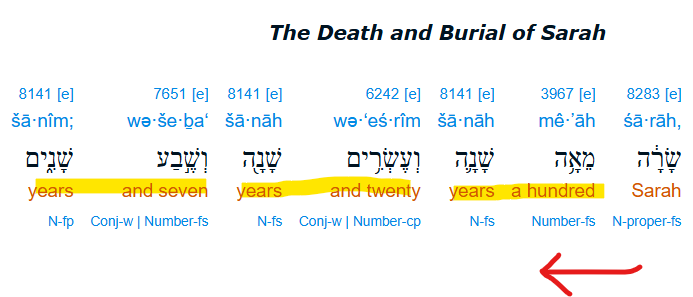But God said, “No, but your wife Sarah will bear you a son, and you shall name him Isaac; and I will establish My covenant with him as an everlasting covenant for his descendants after him.
Genesis 17:19 (NASB)
There is something so sneaky and subversive about the way Genesis talks about women, you miss it if you read it too quickly.
For starters, while Abraham is the “father of our faith,” the story about the miraculous birth is really Sarah’s story, not Abraham’s.
Sarai was unable to conceive; she did not have a child.
Genesis 11:30 (NASB)
Remember, the inability to have children wasn’t Abe’s problem. He was able to have a son with Hagar, which meant he was perfectly capable of having children.
But Sarah was barren, and there is a sense of grief and desperation that surrounds her.
Though she is abusive towards Hagar, she reacts from a place of hurt and shame. It isn’t excusable, but it is understandable. She feels diminished and small, but God elevates her and changes her name.
The thing is, the name change for Sarah seems a bit subtle. Some translations (the NASB, for example) say that the words Sarai and Sarah are the same, but just in different dialects. But most translation commentaries state that going from Sarai to Sarah is going from “my princess” to “princess,” so there’s at least a sense of enlargement or increase in scope of her princessly responsibilities, whatever those may be. But what is a “princess,” exactly?
As it turns out, it has nothing to do with being the “daughter of a king,” but it does have everything to do with royalty and authority.
Both versions of her name are the feminine version of a word that means ruler. Chief. The one in charge. The shot caller.
I. prince, ruler, leader, chief, chieftain, official, captain
1. chieftain, leader
2. vassal, noble, official (under king)
3. captain, general, commander (military)
4. chief, head, overseer (of other official classes)
5. heads, princes (of religious office)
6. elders (of representative leaders of people)
7. merchant-princes (of rank and dignity)
8. patron-angel
9. Ruler of rulers (of God)
10. warden
Strongs: H269 (שַׂר): sar
Now, if you have gender-roles and leadership expectations in your head that precondition you to place a man in higher authority than a woman, you might think that Abram was wrong for listening to his wife in Genesis 16:6, but consider Genesis 21:12. Who tells Abraham to listen and heed his wife? It is God.
But God said to Abraham, “Do not be distressed because of the boy and your slave woman; whatever Sarah tells you, listen to her, for through Isaac your descendants shall be named.
Genesis 21:12 (NASB)
And actually, any statement about the consequences of men “listening to women” fall rather flat when you realize that nothing Eve said was wrong back in the Garden of Eden. Look at Eve’s words!
The woman said to the serpent, “From the fruit of the trees of the garden we may eat; but from the fruit of the tree which is in the middle of the garden, God has said, ‘You shall not eat from it or touch it, or you will die.’”
Genesis 3:2-3
Perhaps Adam should have listened more closely, actually.
Sarah is elevated from being royal leadership with Abram to being royal leadership with Abraham: the leadership and authority tied to the father of nations. She is, in a way, wisdom, personified.
By me kings reign,
And rulers decree justice.
By me princes rule, and nobles,
All who judge rightly.
Proverbs 8:15-16 (NASB)
(In Hebrew, “by me” can also be read “with me.” It’s a connective preposition.)
And to make it even more clear how much Sarah is elevated, God says it twice in one verse!
I will bless her, and indeed I will give you a son by her. Then I will bless her, and she shall be a mother of nations; kings of peoples will come from her.”
Genesis 17:16 (NASB)
So blessed!
And why not? God made it clear that the Son of the Promise will be through her. Yes, through Abraham, but *also* through Sarah. Because God does not view her lower than him, or higher than him, but with him.
And that’s how it is meant to be.

